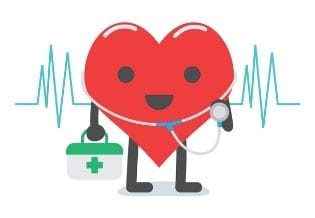Aims and Scope
Publishing high-quality cardiovascular research that informs clinical practice and improves patient outcomes worldwide.
Journal Mission
The Journal of Hypertension and Cardiology (JHC) is dedicated to advancing cardiovascular science and clinical practice through the publication of rigorous, peer-reviewed research. Our mission is to provide cardiologists, researchers, and healthcare professionals with evidence that directly informs patient care and shapes treatment guidelines.
We welcome original research, clinical trials, systematic reviews, and practice-based evidence that advances our understanding and management of cardiovascular diseases. JHC prioritizes research with clear clinical implications and translational potential.
40% Acceptance Rate · 21 Days to First Decision · 4 Days to Publication
JHC welcomes submissions across the full spectrum of cardiovascular research and clinical practice. We encourage multidisciplinary approaches bridging basic science, clinical medicine, epidemiology, and population health perspectives. Our scope encompasses both established and emerging areas of cardiovascular medicine.
Hypertension Management
Research on blood pressure control, pharmacological and non-pharmacological interventions, resistant hypertension, and personalized treatment approaches for diverse patient populations.
Coronary Artery Disease
Studies on atherosclerosis, acute coronary syndromes, revascularization strategies, secondary prevention, and long-term cardiovascular outcomes after intervention.
Heart Failure
Research on heart failure with preserved and reduced ejection fraction, device therapies, advanced heart failure management, and quality of life optimization.
Arrhythmias and Electrophysiology
Investigations of cardiac rhythm disorders, ablation therapies, device implantation, atrial fibrillation management, and sudden cardiac death prevention.
Cardiovascular Imaging
Advances in echocardiography, cardiac MRI, CT angiography, nuclear cardiology, and multimodality imaging for diagnosis and risk stratification.
Prevention and Risk Factors
Studies on cardiovascular risk assessment, lifestyle modification, lipid management, diabetes-cardiovascular connections, and population-level prevention strategies.
Structural Heart Disease
Research on valvular heart disease, transcatheter interventions, congenital heart defects in adults, and structural heart imaging.
Vascular Medicine
Studies on peripheral arterial disease, venous thromboembolism, pulmonary hypertension, and vascular interventions.
Cardio-Oncology
Research on cardiovascular complications of cancer therapy, cardioprotective strategies, and long-term cardiovascular outcomes in cancer survivors.
Digital Health in Cardiology
Innovations in wearable devices, remote monitoring, telemedicine applications, and artificial intelligence in cardiovascular care.
Translational focus: JHC particularly welcomes research that bridges laboratory findings and clinical practice. We prioritize studies that advance mechanistic understanding while maintaining clear relevance to patient care and treatment development.
We publish diverse article formats to accommodate different research contributions and clinical insights. Each submission undergoes rigorous peer review appropriate to its format and methodology.
- Original Research: Empirical studies presenting novel findings from clinical trials, observational research, and translational investigations
- Systematic Reviews: Comprehensive evidence syntheses following PRISMA guidelines and meta-analyses
- Clinical Case Reports: Instructive cases highlighting diagnostic challenges or treatment innovations
- Review Articles: Comprehensive overviews of cardiovascular topics with clinical insights
- Expert Perspectives: Invited commentaries on emerging trends and controversies
- Short Communications: Brief reports of significant preliminary findings
- Letters to Editor: Correspondence regarding published articles or timely topics
JHC upholds the highest standards for clinical research reporting. We require adherence to appropriate reporting guidelines including CONSORT for clinical trials, STROBE for observational studies, PRISMA for systematic reviews, and CARE for case reports. Clinical trials must be registered in recognized registries prior to enrollment.
Our rigorous single-blind peer review process ensures that all published work demonstrates valid methodology, appropriate statistical analysis, and transparent presentation of cardiovascular outcomes. Reviewers assess scientific validity, methodological quality, clinical relevance, and translational potential.
Submit Your Research
Contribute to advancing cardiovascular medicine. We welcome submissions aligned with our scope.
Submit Manuscript View Call For Papers

